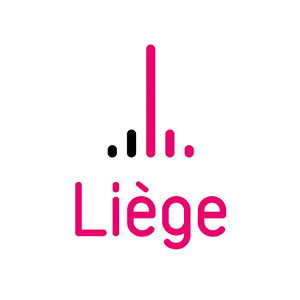Folklore
Folklore
Tchantchès, a puppet and folklore character (his name is the Walloon translation of “Francis”), is the personification of the true, stubborn, hard drinking and sulking person from Liege. Legend has it that Tchantchès was born in 760 between two cobble stones in the Djus-d’la-Moûse (lit. “beyond the Meuse River” in the local dialect, i.e. the popular district of Outremeuse). The good people who found him were amazed to hear him sing out as soon as he entered the world and ask for a glass of pèkèt. Tchantchès quickly turned into quite a kid, a good companion but also a very headstrong person. Nanesse his female companion, is courageous and affectionate, but does not allow herself to be taken in by Tchantchès.
The puppet theatre
Tchantchès harangues the family public in a mixture of French and “accessible” Walloon and draws them into his adventures. They are mostly linked to episodes in the life of Charlemagne. Tchantchès comes to the rescue of the Emperor by fighting the devil or the witch with sharp kicks from his clogs.
The 15 August festivities
The unmissable festivity of the year takes place in the Outremeuse district. For four days, the streets of the district and the potales are lit up, the streets are packed and the pèkèt flows freely. The programme includes: puppet shows, folk dances, a procession of the Black Virgin, an open-air mass with a sermon in Walloon, tirs de campes (a series of dozens of loud fireworks in steel tubes ignited along the ground in long trails of gunpowder), a cortege with the parade of the giants, popular games, concerts, etc.
Student folklore
The academic year is also punctuated by student festivals. Initiations and freshers events take place at the beginning of the academic year, Saint-Nicolas in December and Saint-Torê (“Torê” means bull in the local dialect) in March... You should not be surprised at some street corner to come across a young person with a swaying gait, dressed in a smock that has been written all over, with a fetid smell and wearing a penne on his head (cap with a long peak). These are essential features of any decent "guindailleur" (~student reveller!).
Some vocabulary...
oufti: typical Liège interjection for surprise
potale: small niche or chapel (often inset into a wall) to the Virgin
aubette: kiosk, shelter in local French
drache: Belgians use this word to refer to the pelting rain
kot: Belgians use this word to refer to a student room
guindaille: in French-speaking Belgium, student celebrations involving drinking
trémie: tunnel in local French
Eating & drinking
pèkèt: local gin, juniper spirit
chique: sweet in local French
bonbon: biscuit in local French
mitraillette: meat and chips/fries in a baguette
cramique: sweet bun with dried raisins and sugar
sauce lapin: sauce to accompany meatballs – literally “rabbit sauce”
goulafe: glutton in local French
Some nice words in walloon
crapôde: girlfriend
galant: boyfriend
binamé: nice/kind. E.g.: “Il est bien byname”: “he is very nice”
poyon: little chicken/chick. E.g.: “Mi p’tit poyon”: “Darling”
mi p’tite gueûye: lit. “my little mouth”, means more or less “My dear”
mamé: kind, friendly
Some not so nice words in walloon
èwaré: amazed, stupefied; also foolish
bièsse: idiot, stupid
Lêd djône: lit. “ugly youth”: dirty kid
Clô t’gueûye: lit. “shut your mouth”
Va-s’ti fé arèdjî: go to hell


